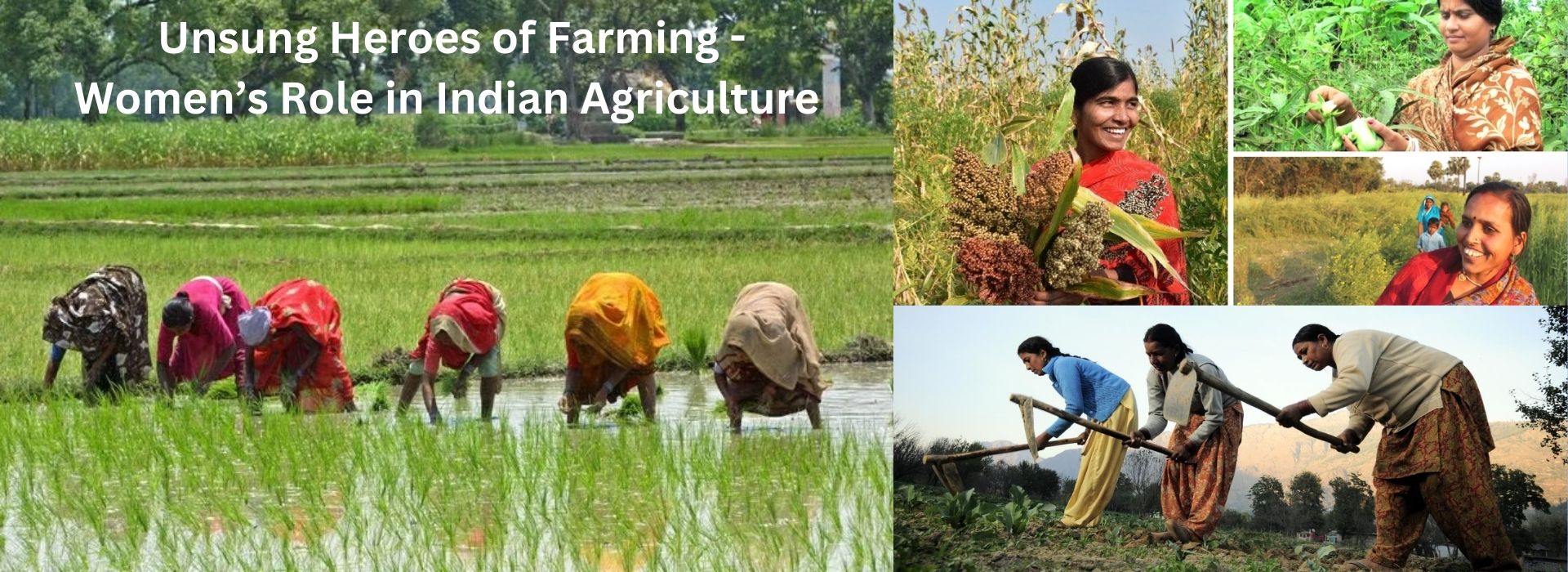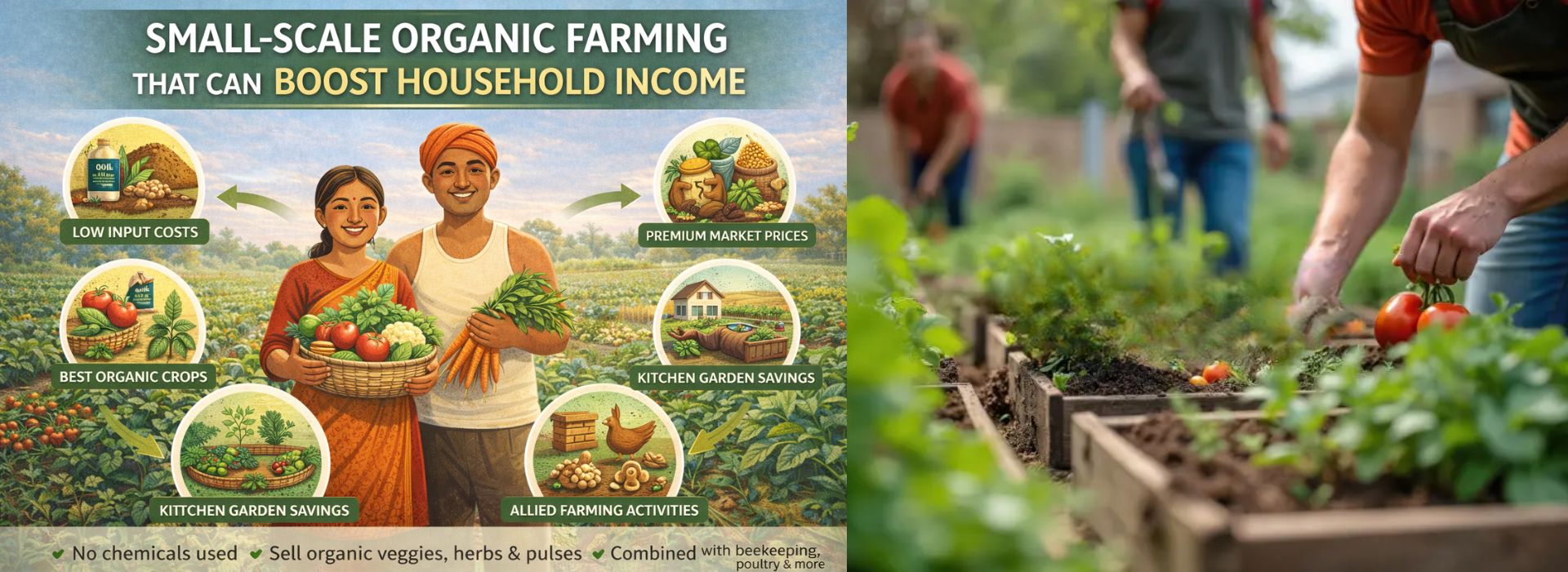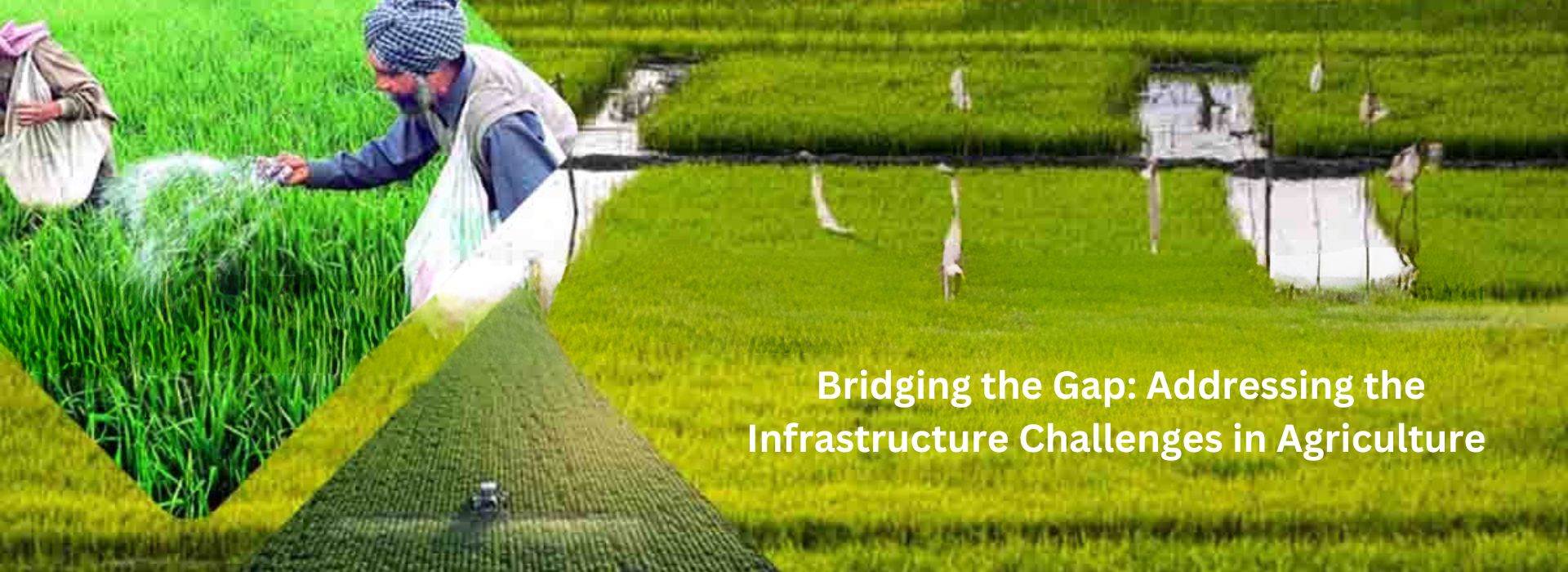Unsung Heroes of Farming: Women’s Role in Indian Agriculture
December 3, 2024Unsung Heroes of Farming: Women’s Role in Indian Agriculture
In India, agriculture has long been a cornerstone of rural
livelihoods, and women form an indispensable part of this sector. While their
contributions often go unnoticed, women make up approximately 75-85% of the
agricultural workforce, actively participating in planting, weeding,
harvesting, and post-harvest processes. Despite their essential role, systemic
barriers and societal biases continue to hinder their recognition and
empowerment.
This blog highlights the pivotal role of women in Indian
agriculture, the challenges they face, and strategies to unlock their
potential.
Women’s Contribution to Indian Agriculture
- Key Tasks in Farming
- Women perform critical
agricultural tasks, from sowing seeds to harvesting crops. They are
heavily involved in horticulture, floriculture, and dairy farming,
ensuring the smooth functioning of farm operations.
- Preservers of Agro-Biodiversity
Women play a vital role in selecting seeds, preserving traditional crops, and ensuring biodiversity in farming practices. Their indigenous knowledge is crucial for sustainable agriculture. - Post-Harvest Management
Activities such as processing, storage, and marketing are often managed by women, showcasing their significant involvement in the agricultural value chain. - Role in Livelihood
Diversification
Women engage in activities like poultry, livestock rearing, and small-scale food processing, contributing to household income diversification.
Challenges Faced by Women Farmers
Despite their contributions, women in agriculture face
numerous challenges:
- Lack
of Land Ownership
- Women
constitute 13.9% of landowners, limiting their access to credit,
subsidies, and decision-making power in farming.
- Limited
Access to Resources
- Women
often lack access to essential farming inputs, technology, and training
programs designed to improve productivity.
- Recognition
Gap
- In
official records, women are often classified as “helpers” rather than
farmers, undermining their contributions and reducing their visibility in
policymaking.
- Workload
and Gender Bias
- Balancing
farm duties with household responsibilities creates a double burden.
Cultural norms also restrict their mobility and participation in modern
agricultural practices.
- Financial
and Institutional Barriers
- Women
have limited access to financial services and agricultural cooperatives,
restricting their ability to scale operations.
Empowering Women in Agriculture
1. Policy Support
- Programs
like the Mahila Kisan Sashaktikaran Pariyojana (MKSP) aim to empower women
farmers by enhancing their skills and access to resources. Expanding such
initiatives can create a more inclusive agricultural sector.
2. Financial Inclusion
- Providing
women with access to microfinance, agricultural loans, and insurance can
empower them to invest in better inputs and technologies.
3. Land Rights and Ownership
- Encouraging
joint land ownership and inheritance rights can give women greater control
over farming decisions and access to government benefits.
4. Skill Development and Training
- Offering
training in sustainable farming techniques, marketing, and technology can
help women adopt modern agricultural practices.
5. Formation of Women’s Cooperatives
- Women-led
self-help groups and cooperatives can enhance their bargaining power in
markets and provide a platform for collective action.
Success Stories of Women Farmers
- The Women of Deccan Development
Society
In Telangana, women farmers have adopted organic farming practices and seed preservation through collective action, ensuring food security in their communities. - Dairy Cooperatives in Gujarat
Women-led dairy cooperatives like AMUL have transformed rural economies, showcasing the potential of women to lead agricultural enterprises. - Self-Help Groups in Odisha
Women’s self-help groups have successfully managed micro-irrigation systems and diversified livelihoods, becoming role models for sustainable agriculture.
Conclusion
Women are the backbone of Indian agriculture, yet their
contributions remain undervalued. Recognizing their role and addressing
systemic barriers is essential for creating a resilient and equitable
agricultural sector. Empowering women farmers is not just a matter of
justice—it is a strategy for ensuring food security, improving rural
livelihoods, and fostering sustainable development.
At krishibazaar.in, you can find and buy
various agricultural products. For agricultural guidance on selecting the most
suitable products for your crops, please contact or WhatsApp at +917887880887






Guest reviews
No reviews found for this Blog